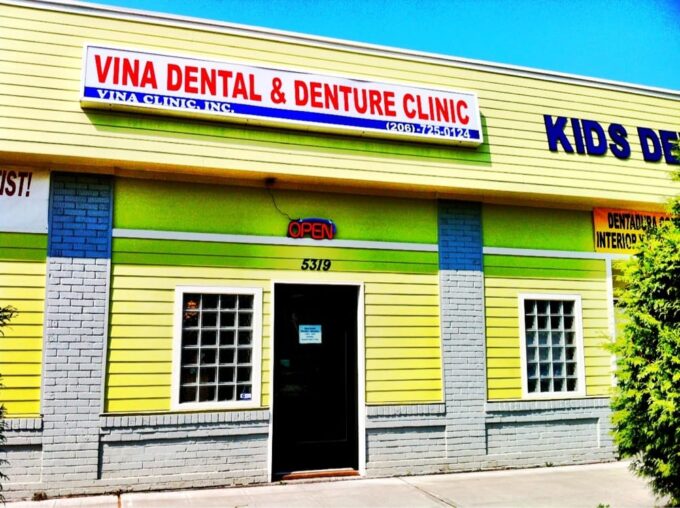
In 2018, a new report from Paychex, which surveys 350,000 small firms nationally, finds that Seattle ranked the first among metros in small-business employment strength. However, according to KOMO News, 4,500 businesses in Seattle have been forced to close down temporarily or permanently since March during the first stay-at-home order. Nationwide, the Washington Post reports over 100,000 small businesses have closed due to the coronavirus.
To address this, the City of Seattle has become a nationwide model in creating the Small Business Stabilization fund to assist owners. Each grant awards $10,000 for small businesses to use for their operating expenses, such as covering payroll and rent. I spoke with Pedro Gomez, the Director of Small Business Development in Seattle’s Office of Economic Development to learn more about the fund.
I asked him how this program was initially created. He told me the pilot fund was created in 2019 and allowed businesses to recover from a destabilizing event, such as vandalism, robbery or death: “We understand that the biggest barrier for business owners is having access to capital. Now, traditional lending practices usually aren’t very friendly to business to small business owners. And those barriers are just even higher when for black-owned business owners or immigrants…Most of your average business only has about 24 days’ worth of money in the bank. So if there’s some type of destabilizing events, your business is likely to fail”. However, cash was only a piece of the larger puzzle. Gomez’s office would also connect businesses with marketing and legal support.
When COVID-19 hit, that became the new destabilizing event for all small business owners. The program’s new goal was to increase the access businesses had to immediate cash. Since the pandemic started, there have been three rounds of funding, and 470 owners have benefited from the fund.
As a former small business owner and person of color, he also says “it allows me to have a different perspective into the work. A lot of times I can put myself in their shoes. There’s a higher level of empathy when you fit the description of the people you’re looking to serve.” According to the City of Seattle, grants have supported 376 businesses in high displacement risk neighborhoods and over 70% of awardees were people of color.
Gomez said “I can’t speak enough to how thankful businesses are to receive this money from the city. I’ve been on the phone with multiple business owners that are just in tears, because the money that we provided, help them keep stay afloat, help them survive and pay their employees and keep in keep people employed.”
I also spoke with two small Vietnamese restaurant owners in Renton, who asked to stay anonymous. While they did not qualify for the Stabilization Fund, they benefited from the Paycheck Protection Program (PPP) organized by the U.S. Small Business Association. They received a $40,000 loan to use on rent, utilities, and payroll. They said, “due to COVID, customers have come to our restaurant less, but we have leaned on the PPP money to support us and use that money to pay our employees.” They have eight employees on payroll and thanks to the PPP loan, they were able to maintain a full roster of employees. I also asked them if another round of the PPP loan should be implemented. They responded that “If closures happened the same way they did in March, we recommend that the government should consider opening another round.”
This restaurant was able to apply to the loan with the help of a local tax firm. I spoke with the owner of CD Income Tax about his experience with working with small businesses to help them gain access to the PPP: “Most of our clients are Vietnamese and some of them may not speak English and understand English quite well. So when the program came out, they were still confused about how to apply. And the people were so happy. One client almost filed for bankruptcy, but because of this money, they stayed afloat.” CD Income Tax has assisted over 100 businesses on applying to this federal loan, which for each business, ranges from a few thousand dollars to over 100 hundred thousand.
I also interviewed Vy Nguyen, assistant director at the Consulting and Business Development Center at University of Washington’s Michael G. Foster School of Business. The Center works with small businesses through the Student Consulting Programs and Business Management Education Programs. The Student Consulting Programs help Seattle’s women-owned and minority-owned small businesses with marketing strategies, analyzing a firm’s financial
health, developing human resource management systems, and improving
operational infrastructures. In the Business Management Education Programs, faculty from the Foster School of Business teach business owners fundamentals to apply to their work. Nguyen said with that since the COVID-19 pandemic “the businesses we have worked with need us more than ever. So, we are busy creating many solutions and combine resources to help them overcome this challenging time.”
Small businesses maintain the culture and livelihood of a community. Without both local, community and federal programs such as the City of Seattle Stabilization Fund and the Paycheck Protection Program, many small businesses would not be able to continue operating.
Hong Ta

